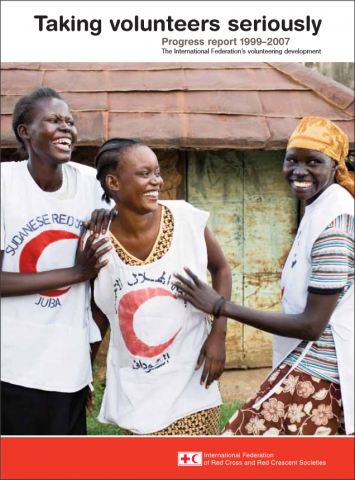Taking Volunteers Seriously


This report is the result of a collective effort by the Governing Board’s working group on volunteering and the International Federation secretariat, which aims to provide a picture of volunteering development since 1999. It provides a broad outline of decision-making and commitments within the International Federation and describes the situation in National Societies. External trends and key issues influencing volunteering are also considered. There are still many gaps that need to be addressed, but with this report, we have gained an important tool to help us identify and deal with these shortcomings. When it comes to managing volunteers in emergencies, experience from recent years illustrates the significant difference that preparation can make.
IFRC, 2007
